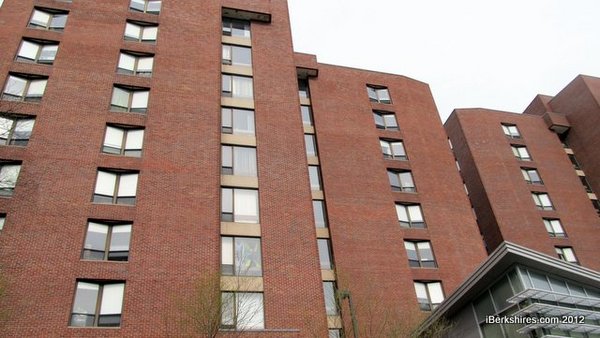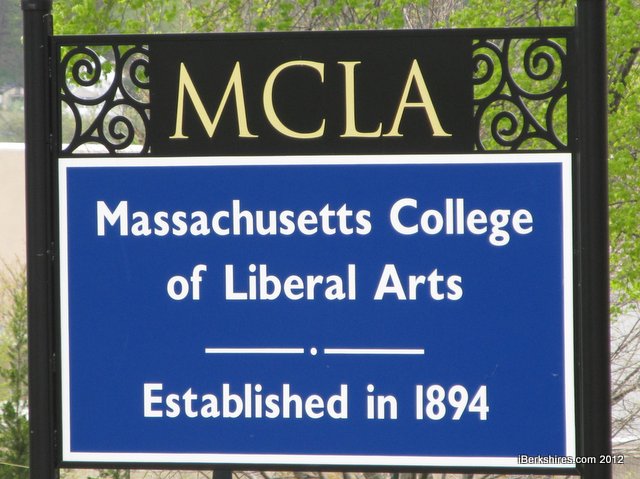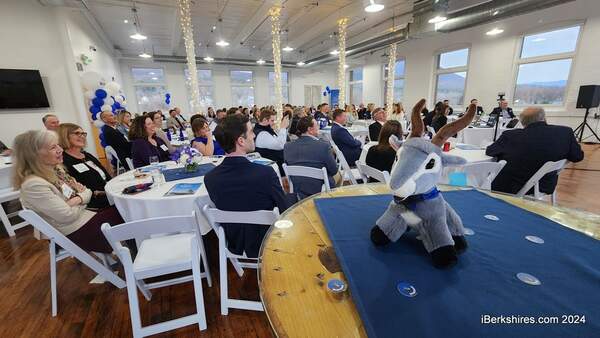
Verizon 4G Could Solve MCLA's Cell Service Woes
 Sections of the MCLA campus are a 'dead zone' for cell service; Verizon's upgrade to 4G may solve the problem and save the college money. |
Because Verizon was recently recognized as the industry leader in deployment of 4G LTE (fourth generation Long Term Evolution) technology, it has decided to upgrade all of its towers to send out 4G frequency instead of 3G. Verizon is trying to do this within the next 60-90 days, said Brandon O'Dell, a Verizon Wireless representative.
"We are always exploring ways in which to increase network coverage and capacity on behalf of our customers," said Michael Murphy, Verizon Wireless public relations manager.
Massachusetts College of Liberal Arts has been talking to Verizon Wireless representatives about putting in a cell tower on campus that would cost $500,000, a cost the college would have to provide. The campus community has struggled with cell phone service and wireless access, and the college's emergency text alert system is not completely reliable.
"Because of the spotty service, the administration has to come up with different procedures to alert students such as word of mouth, emails, and analog phones," said MCLA Chief Information Officer Curt King.
The cause of the spotty service, according to King, is the campus's distance from a cell tower in Adams. The hill behind Berkshire Towers also affects the signal from a tower at the Western Summit on Route 2.
"The terrain doesn't help behind Berkshire Towers, but when you get to Ashland Street you can see the tower and pick up service from it," he said.
The main tower MCLA picks up service from is in Adams, about three miles from campus, and too far of a distance to get a good signal.
According to O'Dell, who met with King last Wednesday morning, 4G is the answer. Currently, all of Verizon's towers are sending out 3G frequencies that can go far distances, but in a straight line. MCLA is on the edge of the 3G service from both closest towers, causing the spotty service.
The existing towers will send out stronger signals that reach farther. The 4G frequencies also bend and curve around objects better than 3G. These frequencies send out at 700 megahertz, causing MCLA to be right in the middle of the signal instead of on the edge.
The college has tried different approaches to fixing the service on campus. It has installed microcell devices, which cost $200-$300. Only five phones can connect to these devices so they are installed only in office spaces on campus, King said.
Amplifiers have also been installed in Berkshire Towers and Hoosac Hall to help the service. The costs of these are $4,000 each to install.
MCLA has laid out a plan using repeaters to try and fix the problem. It is looking to strategically place these devices around campus to see if it would work for all students. This would cost $100,000 or more.
"We are really working hard to solve this problem," King said.
Students are each assigned their own telephone number and are required to have an analog phone in their residence. These phones are required to inform students of emergency situations because the cell phone service is too faulty. If this issue were to be fixed, MCLA would save $50,000 by getting rid of the analog phones, King said.
A recent random survey shows that students routinely experience problems with the cell service. In the survey of 110 students, conducted by this semester's "News Writing and Reporting II" class, 84 percent responded that the cell service on campus restricts their ability to communicate, and 16 percent said it didn't.
The random unscientific survey, which has a margin of error of plus or minus 5 percent, also found that students subscribe to Verizon at an almost 2-1 margin over AT&T — 61 percent to 32 percent. About 6 percent of respondents use a different provider.
The survey also found that 66 percent of students asked have "smart," or Internet-capable phones, and 33 percent utilize "basic" phones, or non-Internet phone service. Of the responders, 56 percent live in the Townhouses, 22 percent in Berkshire Towers, 14 percent in Hoosac Hall and 6 percent live off campus.
The News Writing students also tested signal strength throughout campus and nearby streets. The worst places for service were Murdock Hall, Freel Library, the academic Quad, Blackinton Street and the Campus Center, where phones picked up zero or one bar. Taconic Lawn, the crosswalk between Berkshire Towers and Mark Hopkins, Bowman Hall and Venable showed two bars. Only one location — Ashland Street — showed three bars of service.
Unless students have Verizon, they will not benefit from this change in upgrade but can benefit from other offers Verizon has. The company has made a deal with the school that students could get discounted computer tablets through it.
Usually the prices for these devices range from $150 to $700. Verizon is currently working on a price for students.
Serina Stimpson is a student in MCLA's "News Writing and Reporting II" class. iBerkshires.com welcomes submissions of interest to our readership.
Tags: cell service, cell tower,















